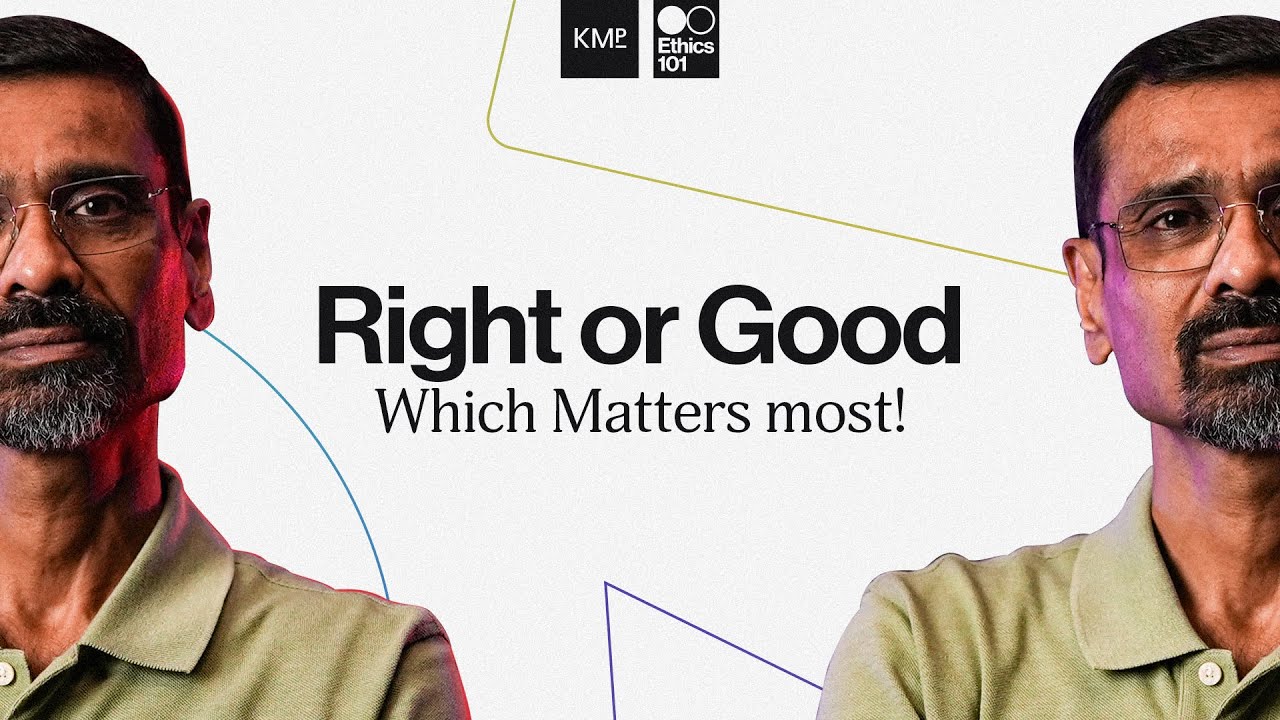Ratan Tata: I never said that 😂
Summary
TLDRIn a candid exchange, the speaker reflects on a popular philosophy of decision-making, clarifying that they don't believe in inherently 'right' decisions but instead focus on making their decisions right. They express discomfort with how this philosophy has been misattributed to social media platforms like Facebook and Twitter, emphasizing that such statements can become default perceptions without their consent. The conversation highlights the challenges of managing public perception in the age of social media.
Takeaways
- 🤔 The speaker reflects on the philosophy of decision-making, stating that they do not necessarily believe in always making the right decision.
- 📝 The speaker believes in making decisions and then taking actions to ensure those decisions turn out well.
- 😬 The speaker acknowledges the awkwardness of having statements attributed to them that they did not actually make.
- 📱 There is a reference to social media platforms like Facebook and Twitter, suggesting that miscommunications can arise from these channels.
- 😶🌫️ The speaker feels there is no effective remedy for how social media presents information about them.
- 🔍 The speaker suggests that certain statements become 'default' beliefs or assumptions once they circulate on social media.
- 📢 They mention how people often misinterpret or reframe their statements when read back to them.
- 🤐 The speaker expresses a sense of resignation or quiet acceptance regarding public perceptions.
- 💬 There’s an implication that social media can distort personal philosophies and beliefs.
- 🙄 The discussion highlights the challenges of managing one's image and statements in the age of social media.
Q & A
What is the speaker's philosophy regarding decision-making?
-The speaker believes in taking decisions first and then making them right, rather than waiting to make the 'right' decision.
How does the speaker feel about the statement attributed to them?
-The speaker is surprised and upset that the statement was attributed to them, as they claim it was never made by them.
What impact does social media have on the speaker's statements?
-The speaker mentions that social media plays a role in how statements are perceived, and people may repeat them without proper context.
Why does the speaker remain quiet about the attribution of the statement?
-The speaker feels that there is no remedial action they can take regarding social media misattributions, leading them to remain silent.
What emotion does the speaker express regarding the misattribution?
-The speaker expresses discomfort and awkwardness about being misquoted on social media.
How does the speaker perceive public reception of their alleged statement?
-The speaker notes that some people may view the misattributed statement as a great thing, highlighting a disconnect between their intentions and public perception.
What does the speaker suggest about the nature of statements circulated online?
-The speaker suggests that once statements are circulated online, they often become default beliefs among people, regardless of their original context.
Is the speaker willing to correct the misattribution publicly?
-The speaker indicates that they feel powerless to correct the misattribution, as there is no effective way to address it on social media.
What does the speaker imply about the relationship between intention and interpretation?
-The speaker implies that there is often a significant gap between what someone intends to convey and how it is interpreted by others, especially on social media.
What is the underlying theme of the speaker's discussion?
-The underlying theme revolves around the challenges of communication in the digital age and the consequences of misattribution in a highly connected world.
Outlines

Cette section est réservée aux utilisateurs payants. Améliorez votre compte pour accéder à cette section.
Améliorer maintenantMindmap

Cette section est réservée aux utilisateurs payants. Améliorez votre compte pour accéder à cette section.
Améliorer maintenantKeywords

Cette section est réservée aux utilisateurs payants. Améliorez votre compte pour accéder à cette section.
Améliorer maintenantHighlights

Cette section est réservée aux utilisateurs payants. Améliorez votre compte pour accéder à cette section.
Améliorer maintenantTranscripts

Cette section est réservée aux utilisateurs payants. Améliorez votre compte pour accéder à cette section.
Améliorer maintenantVoir Plus de Vidéos Connexes

Risk-based decision-making

How to Make Big Decisions in Challenging Circumstances | Jonathan Reimer | TED

"Why Right and Good Aren't the Same!" | UPSC GS 4 Ethics | K M Pathi | Ethics101

Why poker players are better decision makers | Marte Ruud Sandberg | TEDxArendal

If You Can't Make A Difficult Decision - watch this

Cara Mendapatkan Yang Kamu Inginkan - Bob Proctor (Subtitle Indonesia) - Law of Attraction
5.0 / 5 (0 votes)
